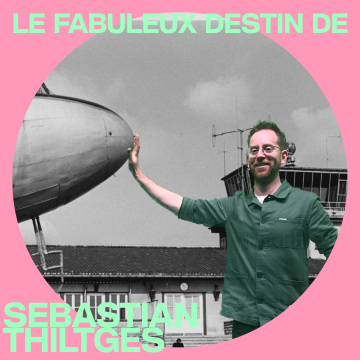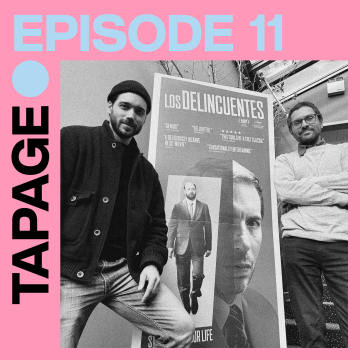24 juil. 2023Le fabuleux destin de Larisa Faber
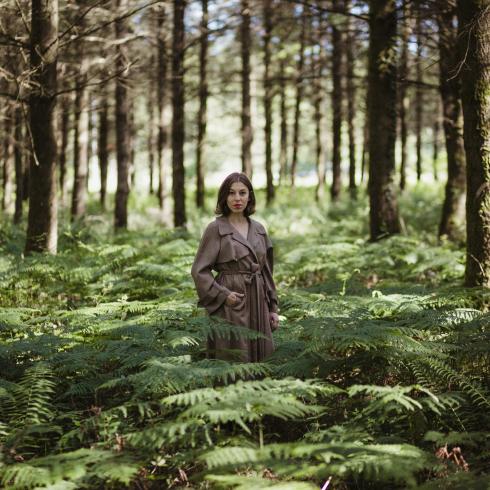
Larisa Faber, © Jeannine Unsen
“You can approach anything from a humorous angle. […] I’m not saying that anyone can laugh about anything, but I’m saying that generally we can laugh about anything.”
Conceiving and not conceiving are not necessarily things that people think of as inherently funny, and yet, Larisa Faber places these themes in the center of her latest comedic works, with success: people laugh(ed).
Her “very irreverent brand of humor” the artist of many crafts inherited from the Romanian part of her family. At 4 years old, Larisa migrated to Luxembourg and left behind a repressive communist regime, where, as she tells me, humor often constituted the last resort in otherwise very harsh living conditions. “If in the winter they shut off your electricity and your heat and you are there with tons and tons of blankets to just survive, the only thing you have left is to tell jokes about the regime. […] That’s why I think humor is important.”
Today, some years later, Larisa finds in her humor a tool to address social stigma and taboos as well as intrusive social expectations that often weigh on the shoulders of women in their mid to late 30s. It’s the ticking of an imagined biological clock that is putting on them an often overlooked but rarely unfelt pressure. It’s also the social judgment that hits women who don’t want to conceive, who go the way of abortion and feel relieved in the aftermath. Here, like anywhere else, there is room for humor, according to Larisa. The wide recognition she currently receives for her work is more than just an affirmation of this conclusion.
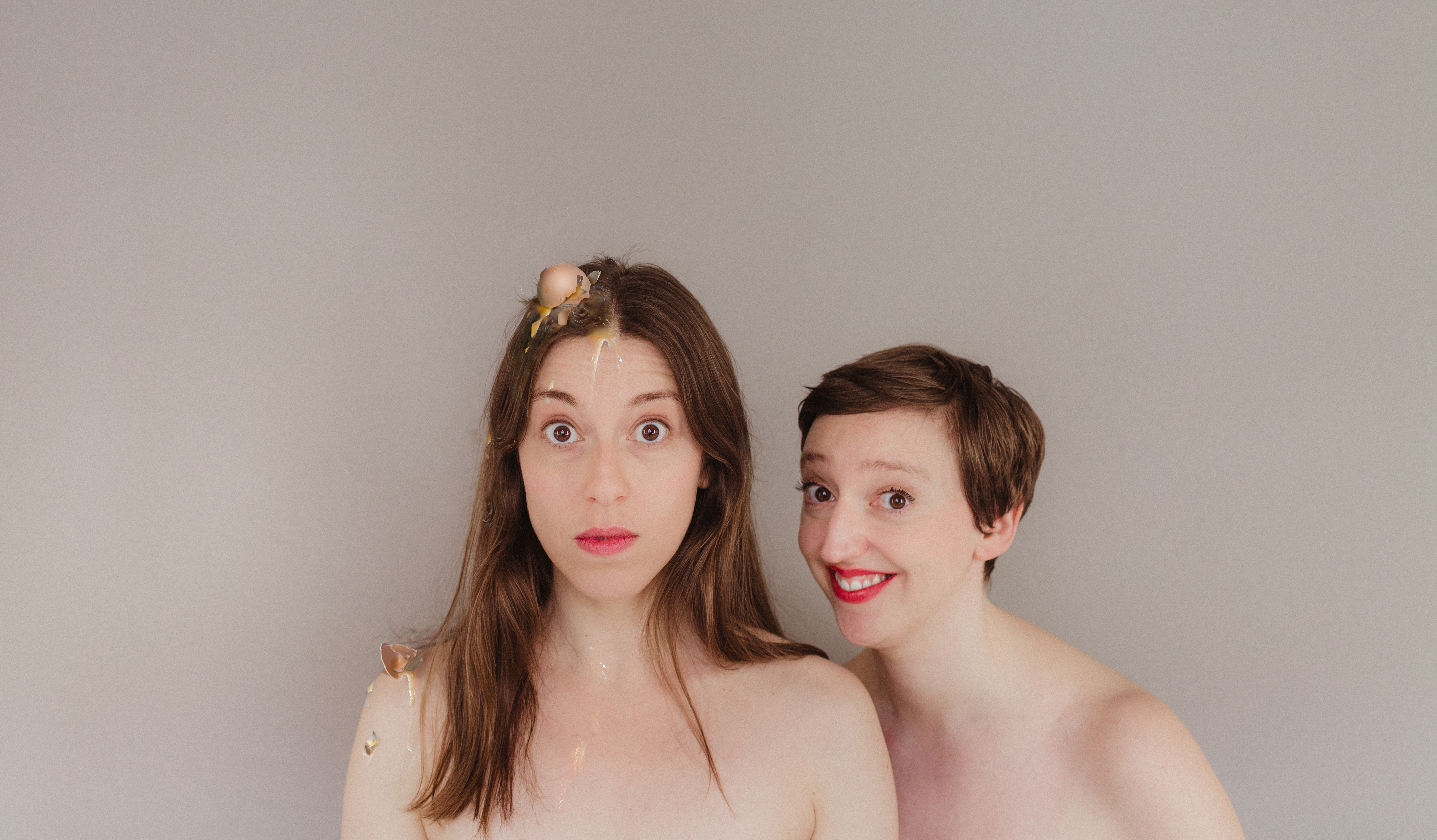
Stark bollock naked on stage
At some point, a few years back, Larisa Faber got commissioned by Black Fountain Press, a Luxembourgish publishing house for English literature, to write ‘something’. Her idea was to write about the pressure to conceive and abortion, but the form was still unclear. Then she approached the Camden People’s Theatre in London and applied to share her work in progress.
Jumping into ice cold water, Larisa got a chance to test her concept for stark bollock naked. Stripped of all gender role constructions and her clothes, she poses the question: “If you have a uterus, must you use it?” In the play, she gets to decide for herself what is to be projected on her naked body – quite literally using video mapping – and challenges in the process the social expectations she herself felt in her personal environment and beyond.
It takes bollocks to perform in full frontal nudity in front of an audience; after all, “it is supposed to be funny, so if people don’t laugh while you are naked, you know it’s going to be a really long hour.” Despite all the nervousness before the work-in-progress sharing – actresses feel that, too – Larisa managed to get commissioned to do the full production. The play then made its way from London to Luxembourg and back to the UK again, as in August 2023 it will run at the Edinburgh Fringe Festival, the biggest performance arts festival in the world, as part of its first ever official Luxembourgish selection.
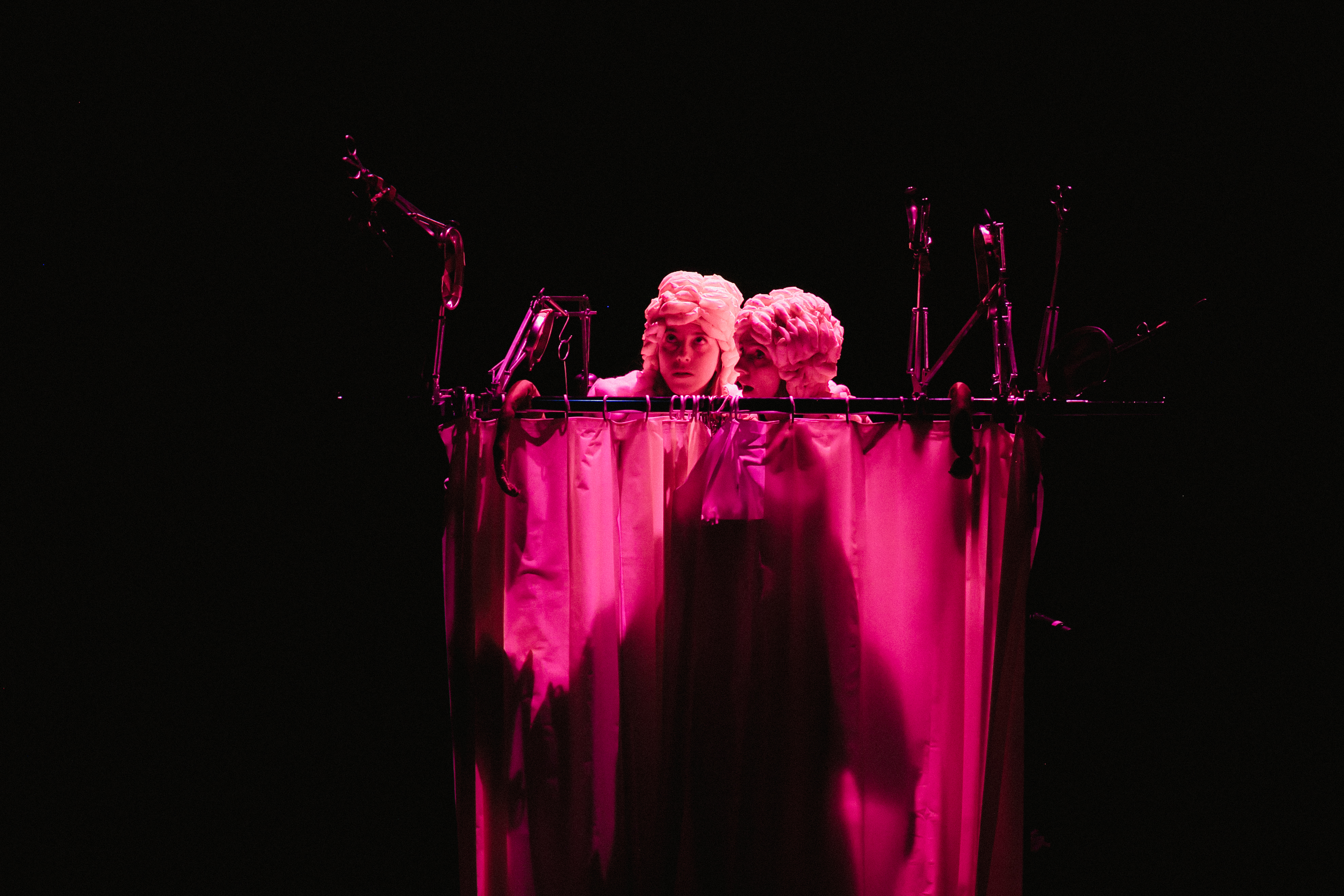
GOOD GIRLS on tour
“I think that abortion is one of the very, very few human experiences where people are outraged when it goes out of the dramatic genre, and I would always encourage people to ask the question why.” This is exactly what Larisa does in GOOD GIRLS, a musical about abortion.
Larisa Faber, now in the role of a writer and director, tells a story about the reclaiming of an experience that we often only see in certain frameworks, namely that of a tragic exception, a moral faux pas that we ought to avoid and to feel guilty about, that lets no room for positive emotions. “[But], I think if you've had the experience of abortion, there is absolutely no reason, that, if you are happy with it, you can't make a comedy show about it, let's say.”
Although the award-winning musical isn’t a straight-up comedy, it still has comedic aspects and knows very well how to polarize the audience. As Larisa points out, “feedback went literally from this being the worst thing I’ve ever seen to this being the best thing I’ve ever seen.” The visceral viewer responses Larisa got after the shows, she traces back to “our very own right to exist: everyone has an opinion and everyone is gonna make sure to tell you about it.”
Birth. on screen
While the other two productions were concerned with non-conceiving, the short film birth. is, unsurprisingly, about birth. Currently in pre-production, the film will take a hard look at the beginning of life from the perspective of the birthing person while stripping the experience of its bloomy over-romanticization often found in the media. The aim is to take birth out of its sanitized sphere and back into gritty reality.
“There is a lot of violence in birthing experiences,” and women might feel exposed to a system that tends to reduce them to a medical object by subjecting them to a mechanical process that undermines their agency, all while being tired and in pain. “In this environment, I think humanity can get lost.” Humor, on the other hand, persists or even flourishes within the extreme when given the chance. That’s why Larisa Faber aims “to sort of find this fine line between tragedy and comedy where most of life resides.”
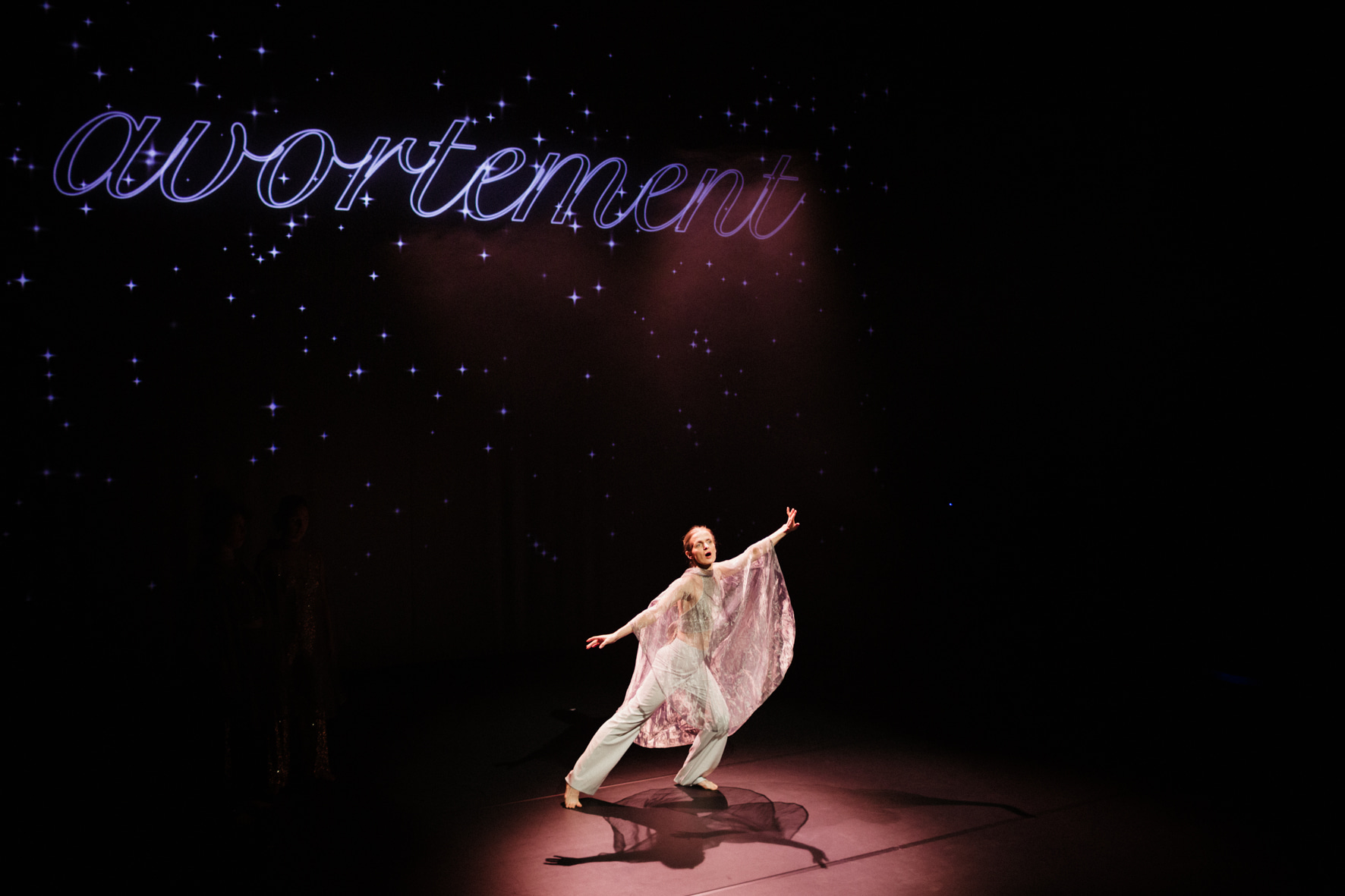
Going beyond the female body
After having explored the functionalities of the female reproductive system to an elaborate extent, it’s time for Larisa to move on. “I think I want to challenge myself and move away from the sort of birthing, abortion, and conceiving or not conceiving,” she says.
As a new associate artist at Neimënster, she now gets the chance to develop a new project over the next three years. Thematically, she plans to shift her focus to her Romanian migration background and, more broadly speaking, to the topic of the Romanian diaspora. Thanks to the format of this unique residence at Neimënster, she can, for the first time in her career, really take her time to research extensively before jumping into the actual production. The research will include much reading on Romanian history, but above all, she wants to work with other people ‘in the room’ before she decides what she’s going to do, which is something she never does, as she tells me.
After all, time and energy become scarce resources as a mother, as Larisa knows all too well. “It’s really challenging to combine self-producing and being a parent.” Larisa manages nonetheless to juggle more than enough projects to fill the agenda of at least two people working full-time. Going through a mental reshuffle at the moment, as she puts it, Larisa will however work at a slower pace from now on and is more than grateful for the residence at Neimënster that offers what’s much needed for working as a mother in the arts.
Les plus populaires
- 20 juil. 2023
- 04 avr. 2024
- 27 mar. 2024
- 26 mar. 2024
ARTICLES
Articles
26 avr. 2024Sebastian Thiltges
Videos
26 avr. 2024TAPAGE avec Alexandra Uppman, Govinda Van Maele et Daniel Migliosi
Articles
25 avr. 2024